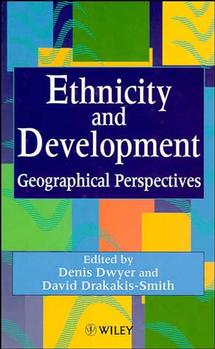Following the collapse of international communism and the ending of the Cold War, the decade of the 1990s has seen international conflict replaced by internal, largely ethnic, conflict both of a violent and of a nonviolent nature. As a result, ethnicity has become one of the most important issues of the day. The social sciences and development studies have been slow to adopt new theoretical and practical perspectives with which to address this fundamentally changed situation. In traditional modernisation theory, ethnicity has been seen as an obstacle and claims to ethnic identity as anti-developmental. This book seeks to contribute towards a re-thinking of this position by focusing on the question of how policies of material improvement can be made compatible with the maintenance of fundamental ethnic identities which, in some senses, can even be considered a human right. Its argument is developed in two ways: firstly through a series of geographical studies, which examine the political and the economic contexts of the relationship between ethnicity and development through the consideration of significant national cases, such as South Africa, Kenya, Ethiopia, Mexico, Malaysia, Thailand and Singapore; and secondly through overview chapters, which place the case studies both within an appropriate theoretical frame and within a broader practical perspective of ethnicity as a highly significant contemporary global phenomenon. Ethnicity and Development will make essential reading for students of geography, development studies and African studies.
Geography
Ethnicity and Development
₹31,040.00
Geographical Perspectives
This book is currently not in stock. You are pre-ordering this book.

